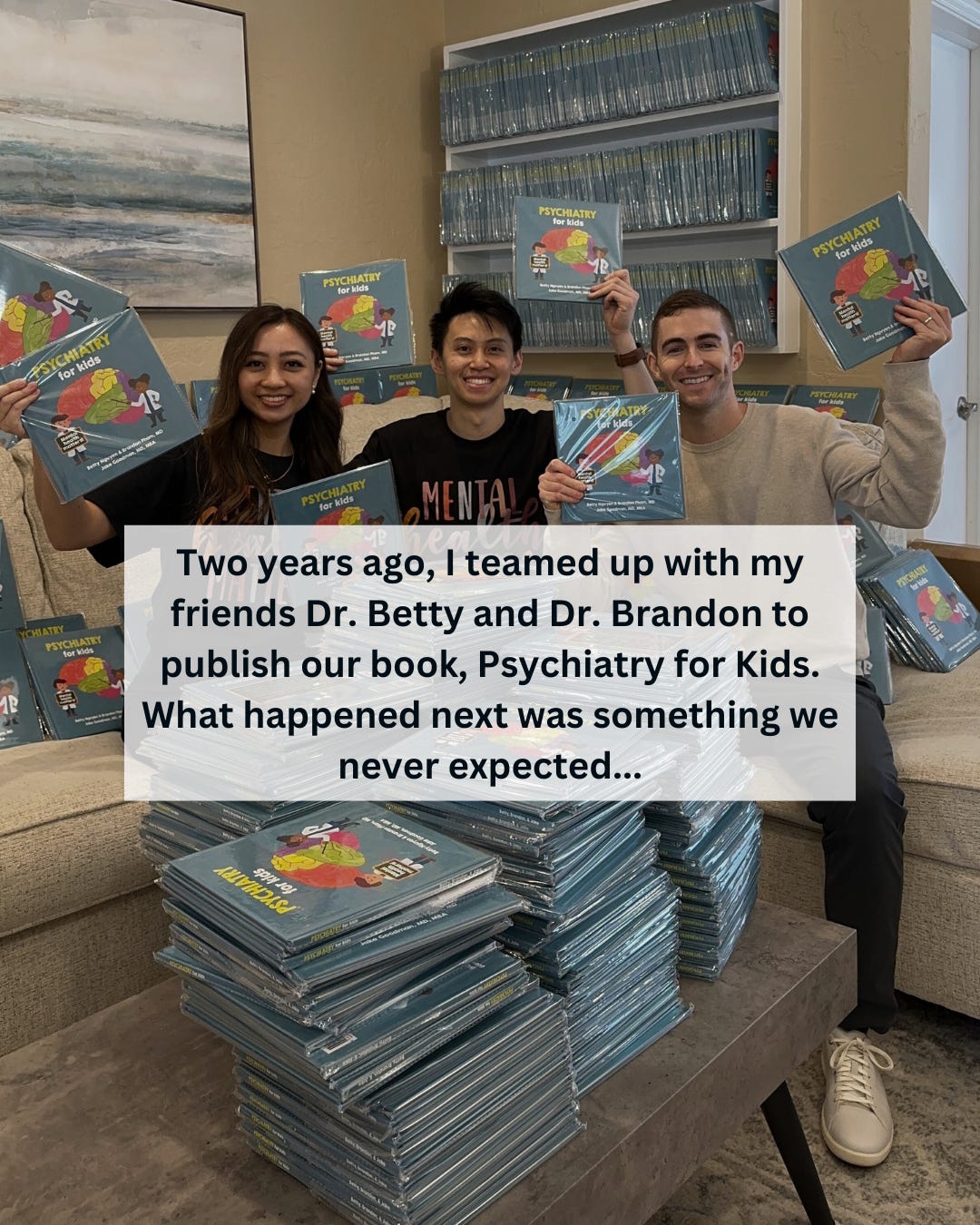Unlock Flow State: Simple Hacks to Boost Focus & Calm
From a psychiatrist who's studying for his boards
As many of you know, life has been a whirlwind for me lately: new city, new house, new practice and a new baby boy on the way. There’s one more thing I haven’t shared: after residency, psychiatrists take a board exam that’s only offered once a year… and this year it happens to fall on our baby’s due date, September 8…
Yep, you read that right. If our little guy decides to arrive on his due date, I’ll have to choose between my baby/wife and my boards.
Don’t worry — I’ll be in the delivery room, not sitting for an eight‑hour test if that happens.
Fingers crossed that the universe doesn’t force me to choose – your prayers are welcome!
Studying like this has me flashing back to med school days, except now I’m juggling a private practice, a growing family and a multiple house projects. The only way I’m staying sane while studying is by getting back into “flow.”
How to tap into flow state
You’ve probably felt flow before: that “in the zone” feeling when you’re playing sports, cooking a complicated dish or knocking out a project and suddenly realize hours have passed. Flow feels like intense focus, a loss of self‑consciousness and a sense that time is slipping away. When tasks are too easy, we get bored; too hard and we feel stressed. Flow happens in that sweet middle ground where you’re challenged but capable.
Here are a few ways I’ve been creating flow state:
Batch similar tasks. The brain doesn’t like switching gears. Psychologists have found that hopping between complex tasks creates “switching costs” that can zap a big chunk of productivity. For example, instead of an hour of studying, a half‑hour of writing the newsletter, half‑hour of clinic notes, half hour of filming content etc., I carve out dedicated blocks: two hours of studying, two hours of seeing patients, two hours of social media. Fewer transitions = deeper focus.
Take micro‑breaks. Research on sustained attention shows that short breaks prevent performance declines. I set a timer for 25 minutes, then look away, stretch or grab water for three minutes before diving back in.
Hydrate and fuel your brain. Dehydration impairs short‑term memory and attention, and remaining hydrated improves alertness. Keep a bottle of water handy and snack on brain‑friendly foods.
Remove distractions. Put your phone on do not disturb and leave it in another room. Close out social media tabs. Make the task in front of you the only thing that matters.
You don’t have to be prepping for a board exam to find your flow state. I feel it on the soccer field, at the gym and when I’m writing this newsletter right here, right now. You can find it while baking bread, gardening or diving into a creative project. Play around with time‑blocking and see how it feels.
Turning your home into a haven
When I’m not studying, seeing patients, or prepping for the baby, I’m pouring energy into our new house. And it turns out that working on home projects might actually improve mental health. A recent survey from Verywell Health found that 80 % of people say decorating or updating their home boosts their well‑being, and 61 % feel better when they maintain their yard or exterior. That resonates with me. We’re setting up a calming nursery, transforming my home office into a place I enjoy seeing patients from, and even planting a mini‑orchard with fruit trees and a raised garden bed. I picture our little family spending mornings picking fruit and evenings relaxing outside.
If you’re craving more peace at home, try:
Decluttering one corner or shelf.
Adding a plant or two for a touch of nature. If you’re new to plants - I recommend starting with a snake plant or pathos.
Creating a dedicated space for work or hobbies (even if it’s a nook at the kitchen table).
Letting natural light in or using warmer bulbs to change the mood.
Little changes add up, and you deserve a space that makes you feel grounded.
A celebration and a new tool for kids’ mental health
Two years ago, Dr. Betty, Dr. Brandon and I published our book Psychiatry for Kids.
We just wanted to make mental‑health concepts fun and approachable, but the response blew us away. Messages came in from around the world, the book hit #1 in three categories on Amazon, and we donated 1,000 copies to kids who needed them.
Parents and educators kept telling us, “I wish there was an easy way to get kids talking about their feelings.” So today we are releasing Mindful Connections for Kids, an interactive card game. It includes 60 question cards to spark conversations and 20 action cards with mindfulness exercises. It’s designed for parents, teachers and kids to play together. If you’re raising or teaching little ones, or if you have grandkids, check it out here:
Thank you for supporting our mission to make mental health accessible to families.
As always, if you or someone you know in California or Florida is looking for a psychiatrist who helps medical professionals and high-performers find work-life balance, and protect their mental health, I know a guy! Feel free to set up a free consultation call with me here. Have a wonderful week!
Disclaimer: This newsletter is for informational purposes only and does not constitute medical advice. The content is based on evidence-supported research and personal experience, and is not intended to replace professional medical care. Always consult your healthcare provider before beginning new treatments or making changes to your health routine. This newsletter does not establish a doctor–patient relationship. While every effort is made to ensure accuracy, I make no guarantees as to the completeness or accuracy of the information presented. Content is general in nature and may not apply to your specific situation. Please note, submitting the intake form for my practice does not guarantee a response from our office. Completion of this form does not establish a client–patient relationship. I will respond to all qualified inquiries as promptly as possible.
Sources
Ariga, Atsunori & Lleras, Alejandro. Brief and rare mental “breaks” keep you focused: Deactivation and reactivation of task goals preempt vigilance decrements. Cognition, 2011.
Chang, Heidi & Kale, Tanvi. “Flow State: The Science Behind Optimal Human Performance.” Grey Matters Journal, 12 Jul 2025.
Lleras, Alejandro & University of Illinois at Urbana‑Champaign. “Brief diversions vastly improve focus, researchers find.” ScienceDaily, 8 Feb 2011.
Multitasking: Switching Costs. American Psychological Association,
Verywell Mind. “Home decor and mental health statistics” (survey findings on home improvements and well‑being).



Flow state is fascinating and definitely what I fall into during Sunday meal preps. Congrats on the new launch - I’m sure these resources will help so many kids!
Thanks. I think that I have to be more mindful about finding flow states. Hiking, cooking, sports come to mine. Appreciate your comments about time blocking.